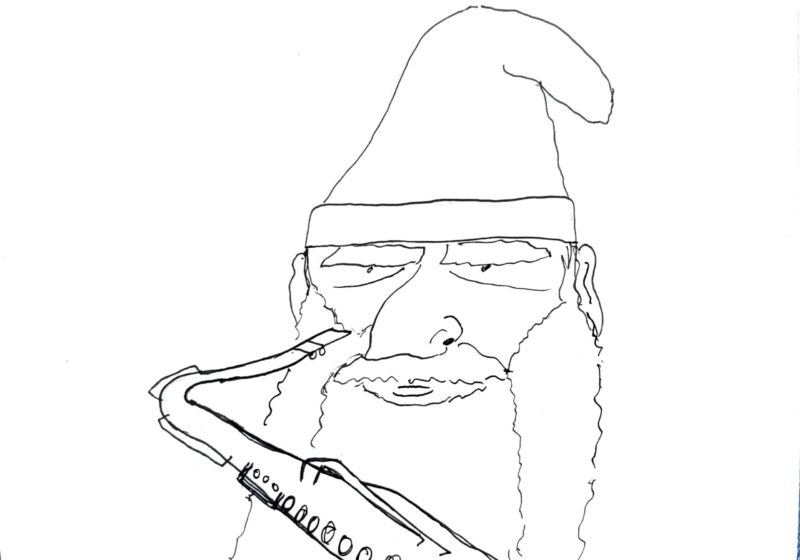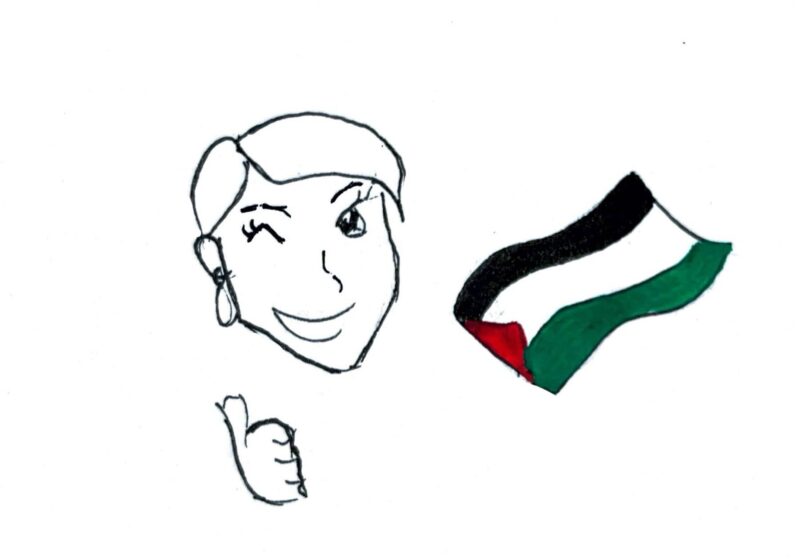Colleen Raimond figures she has “the coolest job in the world.”
Raimond, the LGBTQ coordinator for the Paul J. Burgett Intercultural Center, is the go-to person for matters of gender identity, sexual orientation, and intersectionality — a self-titled “hub of LGBTQ things here in the college.”
Directing people in need to useful resources is a crucial aspect of Raimond’s role, one that has become important at a time when the social and legal landscape surrounding LGBTQ issues has become uncertain.
“Resources are important for people just in general,” Raimond said. “But […] during a time of flux, there is more of a need to have centralized people that can point people to resources. You [as college students] have enough on your plate without trying to figure out a landscape that is changing or could change any day.”
Every day looks a little different for her — which she finds rather exciting — especially as she is constantly engaged in at least one of her many responsibilities. Raimond organizes numerous educational workshops including the recent “LGBTQ Ally Bootcamp.” She also serves as a resource for anyone needing a person to talk to regarding LGBTQ issues, whether they are part of the LGBTQ community or just someone wanting to learn more.
As such, Raimond says students unfamiliar with LGBTQ topics should not be dissuaded from coming to talk to her or attending her workshops. She wholeheartedly welcomes any curious mind.
“People can ask me any question that they want, and I won’t be offended, because I’m paid to answer those questions. So, I’m a really good person to ask them to,” she said. “A lot of education comes from people asking uncomfortable questions to the right people.”
Raimond enjoys and devotes herself to her role here at UR, which she first took up last November. “I get to talk all day about stuff that I care a lot about, and I get to work with the future of our community,” she said with a smile.
Raimond is involved in multiple aspects of the campus community — from running workshops and training students to educate one another, to meeting with students and being part of a number of committees. Some of her many roles on campus include: the Chair of the LGBTQ Advocacy Committee, a member the Gender Inclusive Working Group, and a close partner with the PRIDE network and the Trans Intersex Non-binary Two-spirit (TINT) group.
She also stressed that the position of LGBTQ Coordinator is focused on identity-based programming.
“What that means is that we focus on intersections of identity,” Raimond said. “It’s not just LGBTQ; it’s like all together.” Thus, she wants to have programming that revolves around the intersections in communities, like what it means to be a member of the LGBTQ community and an athlete or an LGBTQ person and a person of faith.
Another central focus of her job is to strengthen the network of resources available to UR students. A key aspect of improving partnerships within the University community is learning who the LGBTQ faculty members are and connecting students to those faculty. To facilitate this, Raimond has invited all LGBTQ faculty members that she is aware of in the College to a faculty tea event on Nov. 8.
Raimond, who is a member of the board of the Out Alliance, began her career as an attorney, a job that allowed her to do pro bono work to help transgender people obtain legal name changes. She decided to transition from work as a lawyer to her current role after being involved in a Campus Out Summit at St. John Fisher College.
“That’s where I really started to think […] I’d like to do something that involves the LGBTQ community more. I think that that would be a better fit for me as far as what I wanted out of my life,” Raimond said. “It was that event that made me realize that the population that I wanted to work with most exclusively was college students.”
When asked about the University itself, she admitted that there was a lot of work left to be done, but she did commend UR on having “more all-gender restrooms than many of our peers in the Rochester area” and “very trans- and gender-expansive-friendly name change policies.” These things speak to at least trying very hard to create an inclusive climate, according to Raimond. Additionally, UR deliberately put Raimond’s office in the Burgett Intercultural Center.
“Given our large international population, […] having my position housed in the Intercultural Center creates a safe environment for some of our international students and some of our domestics students who are not out,” Raimond explained. “Certainly, we have some students where it would be unsafe for them to be out…Housing me here gives them another reason to be in this space.”
This decision allows the anonymity and safety of UR students coming from less tolerant backgrounds to be preserved.
A year on, Raimond does not seem to have lost any of her zeal for her role, and this is evident in the way that she speaks about her interactions with students.
“I really like working with the future of our community […] because it is these people who are going to determine where our culture goes,” Raimond said.
“We have a changing culture with a changing language, and it’s not me who is going to decide where that is going to go […] Cause it’s a culture; the people within the culture are making the decisions of where we are going to go.”




